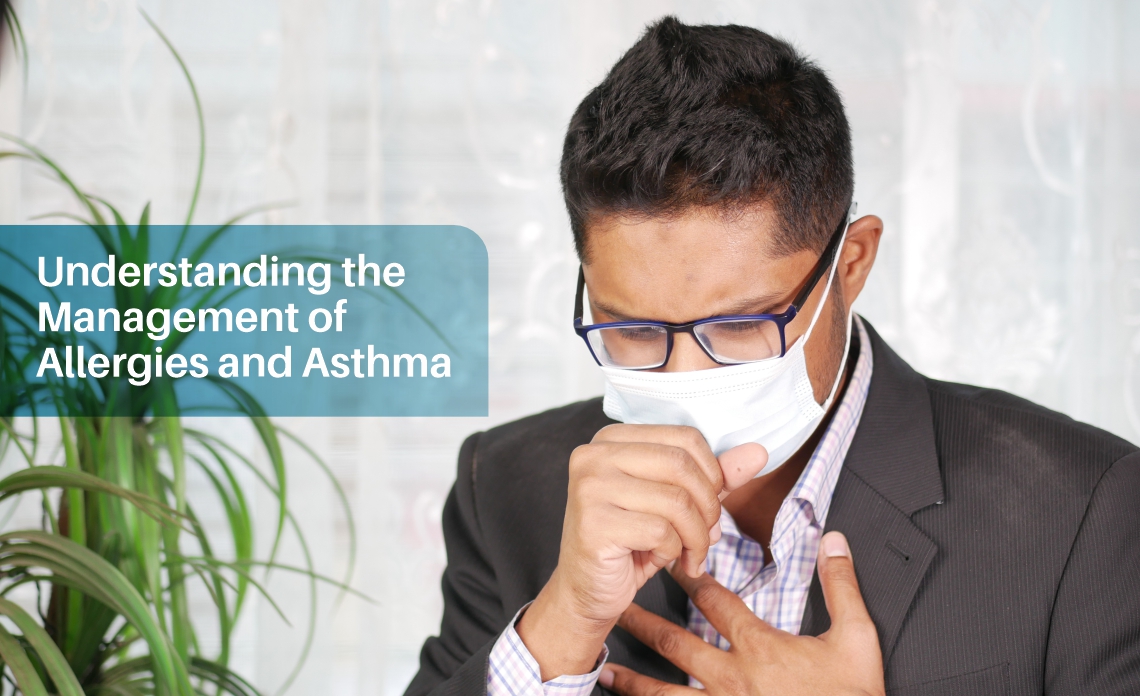
If you or a loved one suffer from allergies or asthma, you’re not alone. Many people around the world deal with these conditions, but with the right management techniques, you can lead a healthier and happier life. Let’s dive into some simple yet effective tips for managing allergies and asthma.
Understanding Allergies and Asthma
Before we delve into management tips, it’s important to understand what allergies and asthma are. Allergies occur when your immune system reacts to a substance that is normally harmless, such as pollen or pet dander. Asthma, on the other hand, is a chronic condition that affects the airways in your lungs, making it difficult to breathe.
Tips for Managing Allergies
- Allergen Avoidance: Identify and avoid triggers that worsen your allergies. This could include staying indoors during high pollen seasons or keeping your home free of dust mites by regularly cleaning and using allergen-proof covers on pillows and mattresses.
- Medication: Take prescribed allergy medication as directed by your doctor. Antihistamines, decongestants, and nasal sprays can help alleviate allergy symptoms such as sneezing, itching, and congestion.
- Immunotherapy: For severe allergies, your doctor may recommend immunotherapy, also known as allergy shots. This treatment involves gradually exposing you to increasing doses of allergens to desensitize your immune system.
Tips for Managing Asthma
- Asthma Action Plan: Work with your doctor to create a personalized asthma action plan. This plan should outline your daily medications, steps to take during asthma attacks, and when to seek emergency medical help.
- Symptom Monitoring: Keep track of your asthma symptoms and peak flow readings using a peak flow meter. This can assist you in recognizing triggers and effectively managing your condition.
- Respiratory Health: Practice good respiratory hygiene by avoiding smoke, air pollution, and other irritants that can exacerbate asthma symptoms. Also, get regular exercise to improve lung function and overall health.
General Tips for Both Allergies and Asthma
- Emergency Preparedness: Always have your rescue inhaler or epinephrine auto-injector with you in case of emergencies. Make sure your friends, family, and co-workers know how to help you during an asthma attack or allergic reaction.
- Consult Your Doctor: Regularly consult your doctor for check-ups and adjustments to your treatment plan. They can provide guidance on managing your condition and answer any questions you may have.
- Stay Informed: Stay up-to-date on the latest research and developments in allergy and asthma management. Knowledge is power, and understanding your condition can help you make informed decisions about your health.
At Saraswati Hospital, we’re committed to helping you live your best life, free from the limitations of allergies and asthma. By following these simple tips and working closely with your doctor, you can take control of your condition and enjoy a healthier future.
Remember, managing allergies and asthma is a journey, not a destination. Be patient with yourself, stay proactive about your health, and never hesitate to reach out for support when you need it. Together, we can overcome any challenges and achieve optimal respiratory health. If you have any questions or concerns about managing your allergies or asthma, don’t hesitate to contact us at Saraswati Hospital at – 9825445403. Our team of experienced doctors is here to support you every step of the way.

